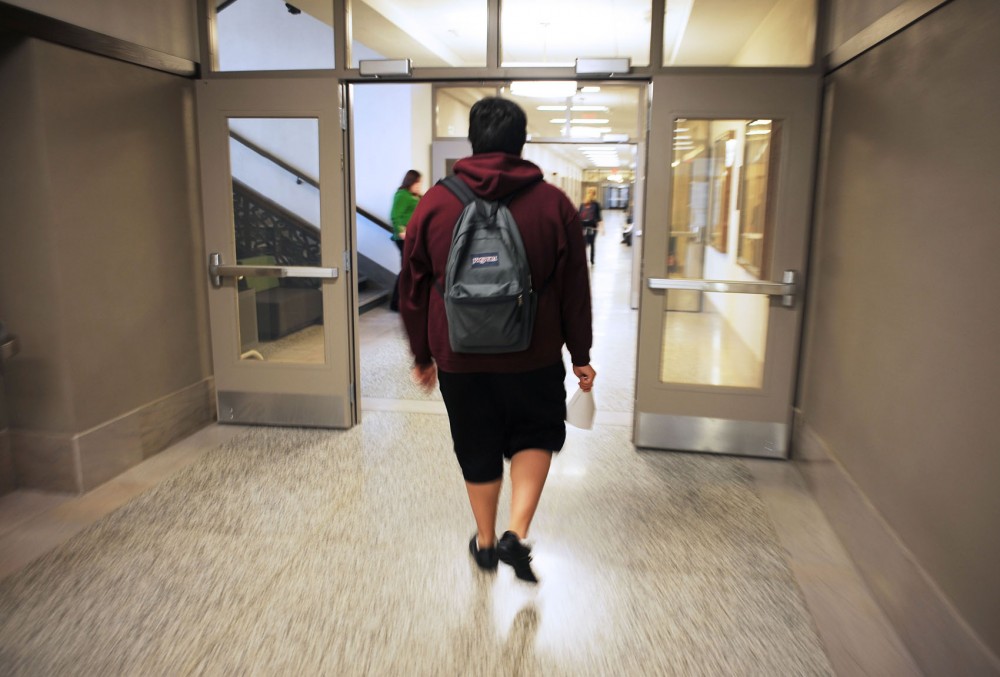Editor’s Note: A University of Minnesota student’s name was changed in this story to protect his identity due to fears his parents could be deported.
In the middle of eighth grade, three weeks before a large exam, Apolinar woke up to two policemen at his front door in St. Paul asking for his parents.
Midway through the school day, he was called down to the principal’s office where his aunt was waiting. His parents had been deported to Mexico.
Apolinar is now a freshman in the University of Minnesota’s College of Education and Human Development and is looking to apply to the School of Nursing.
“My aunt told me to go home, pack up everything because you’re going to Mexico with your mom and your little brother,” Apolinar said.
Though he was born in the United States, his parents were from Zacatecas, Mexico and came to Minnesota illegally in the 1980s.
The 2012 presidential campaign has brought illegal immigration issues to the forefront of minds for students like Apolinar. Many of the presidential candidates vying for the Republican nomination have expressed their desire for tougher border control policies and fewer pathways to citizenship for illegal immigrants.
Apolinar is one of many children of undocumented parents living in the United States. According to a report from the Foundation for Child Development, approximately 4.1 million children in the U.S have at least one undocumented parent.
These children face different obstacles growing up that often go unseen. The report points out health and learning gaps between children with parents of legal status and those of undocumented parents.
The percentage of children without health insurance almost doubles from children of U.S. citizens to children of unauthorized parents — from 8.3 percent to 16.4 percent, according to the report.
There is an even bigger difference: Most children with documented parents don’t leave home each morning fearing the worst.
“Every day was a constant fear for me that my parents might get caught again,” Apolinar said.
Apolinar and his then 2-year-old brother were U.S. citizens but were deported with their parents. He had to return to Mexico to stay with his family.
“When America deports its own citizens, you feel a little betrayed,” Apolinar said.
The La Raza Student Cultural Center at the University tries to combat stereotypes of immigrants in the U.S. by taking action.
“A lot of focus on humanizing the topic but not really fighting against some of these policies,” said La Raza events coordinator Uriel Rosales-Tlatenchi, a sociology and Chicano studies senior.
La Raza points undocumented students who don’t have access to financial aid to scholarship sources that are available to all students regardless of immigration status as well as provide campus tours to K-12 groups visiting the University.
After just a week of living in Mexico, Apolinar, his mother and baby brother traveled back to the U.S. by floating on an inner tube across the Rio Grande.
Today, he is persistent about one issue — informing other students his age about the life they take for granted as children of American citizens.
“The way I see most of my American peers, kids don’t take things seriously,” Apolinar said.


